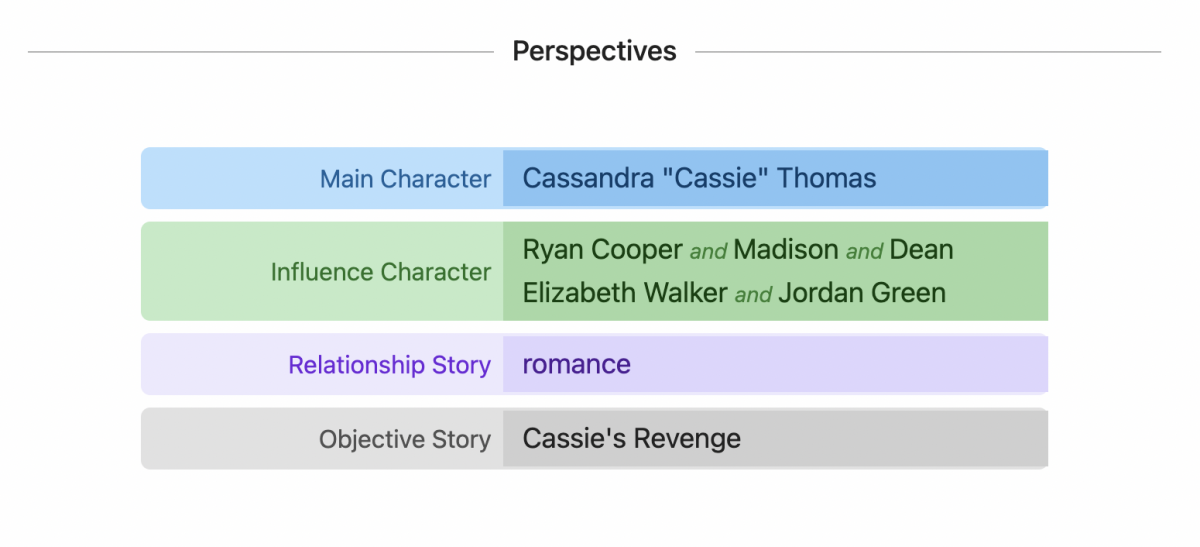
Promising Young Woman
The distancing effects of another perspective
While critically lauded and well-received by many, Promising Young Woman offers a unique and often foreign experience of conflict. Praised for its confidence in providing a voice for the #MeToo generation, it can prove challenging to follow for those more comfortable with the cut and dried approach of cause and effect.
I'm reading your 'The Problem with Avoiding a Solution' transcript in which you say that you've watched 'Promising Young Woman'. I've just read the screenplay and, well, in my limited understanding of Dramatica, there was no IC. And that was seriously annoying. I have not read the other screenplays, so I don't know if it deserved its Oscar. I thought it was one the weakest screenplays I've read in a while.
There is an Obstacle Character in Promising Young Woman, and quite a strong one at that.
Ryan Cooper provides the main challenging Obstacle Character perspective to Cassie’s Main Character. His re-imagining, or re-contextualizing, of the situation that happened back in college is what challenges Cassie to rethink what it is she is doing to exact revenge. His motivation of Projection, of seeing what will most likely happen, allows him to look the other way and manipulate others to do the same.
This challenging point-of-view moves from Ryan to three other people throughout the narrative in a technique known as a “hand-off” in Dramatica theory. Madison (Alison Brie), Dean Elizabeth Walker (Connie Britton), and Jordan Green (Alfred Molina) all share that similar point-of-view of taking advantage while being motivated through Projection.
Interestingly enough, the last hand-off—the one with Jordan—illustrates the New Motivation of Speculation required for the narrative to be complete. Interesting because it “happens” in the middle of the script—a scene that you would typically find at the end of a Male-constructed story.
With a Holistic, only the relationships matter, not whether or not a “solution” was found at the end. Jordan’s pleas illustrate Speculation—a guessing of what might be—the precise switch in motivation needed to show an Obstacle Character perspective with a Changed Resolve.[^motivation]
[^motivation]: Original Dramatica theory hard-codes the new Motivation as a “Solution” to a Throughline’s Problem. Subtxt prefers Motivation and New Motivation as this works across both Male and Holistic narratives.
Your annoyance with the script likely has less to do with a missing Obstacle Character and more to do with the Holistic Mindset used to structure the story. More Male-minded people find it very difficult to relate to and empathize with stories structured around relationships.
Download the FREE e-book Never Trust a Hero
Don't miss out on the latest in narrative theory and storytelling with artificial intelligence. Subscribe to the Narrative First newsletter below and receive a link to download the 20-page e-book, Never Trust a Hero.


